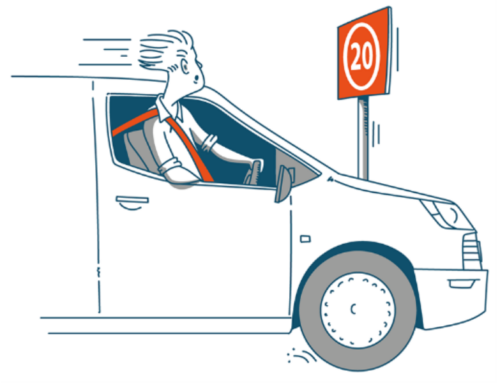As a regulatory lawyer specialising in criminal motor matters, Charlotte Le Maire of LMP Legal has observed a significant and concerning trend in the realm of drugged driving. It’s a topic that, while uncomfortable, demands urgent attention. Drug driving, much like driving under the influence of alcohol, poses a serious risk to everyone on the road, and your organisation’s driving for work policy should make that clear.
Fleet managers – prescription drugs and your drivers
In the UK, it is illegal to drive if certain legal drugs impair your ability to do so. This law also applies if you exceed specified limits of certain drugs in your blood without a prescription. It’s vital to consult your healthcare professional if you’ve been prescribed drugs such as amphetamine, clonazepam, diazepam, and others. Remember, even if these are prescribed, they can still impact your driving capabilities.
Under UK driving laws, penalties for drug driving are severe, including a minimum one-year driving ban, fines, imprisonment, and a criminal record. For causing death by careless driving under the influence of drugs, the penalty can be as severe as life imprisonment.
It is important to remember that even legal drugs can impair you to a significant degree, with drug driving now more prevalent than ever. There has been a staggering 400% rise in drug driving since March 2020, compared with 250% for drink driving in the same period. Drug driving includes those on prescription drugs.
Drug Driving – the law
The increase in mental health issues among young adults, correlates with the rise in drug driving offences.
While illegal drugs are a significant part of the problem, prescribed drugs, particularly anti-anxiety or relaxants, have also contributed to the increase in driving offences during the pandemic. Over-the-counter medications like antihistamines and cold remedies can equally impair driving.
Companies should:
- Educate directors and managers about drugs and alcohol misuse.
- Learn how to recognise signs of drug and alcohol use.
- Understand how different drug categories affect driving.
Moreover, discussing the legal consequences of drug and alcohol driving is crucial. Everyone who gets behind the wheel should be aware that even legally prescribed drugs can carry severe penalties if not used properly and in conjunction with the prescription. Additionally, a driver’s prescription should be carried with them at all times while driving.
What are the penalties for drug driving?
If a driver is convicted of drug driving they may get:
- a minimum 1 year driving ban
- an unlimited fine
- up to 6 months in prison
- a criminal record
Their driving licence will also show they’ve been convicted for drug driving. This will last for 11 years.






